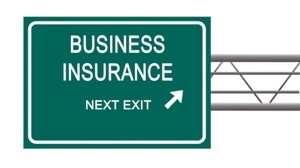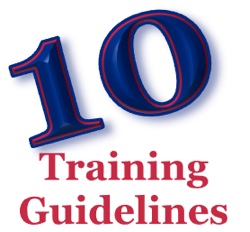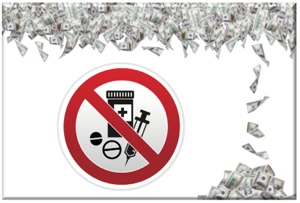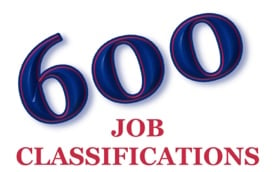Don't shoot yourself in the foot - consider your concealed weapons policy!
 As a small business owner who allows customers and visitors on your property, you assume the responsibility of providing a reasonably safe environment for them. This responsibility includes warning them about any concealed dangerous conditions. In states with “concealed carry” laws, you might need to post warnings that your sales clerks are armed.
As a small business owner who allows customers and visitors on your property, you assume the responsibility of providing a reasonably safe environment for them. This responsibility includes warning them about any concealed dangerous conditions. In states with “concealed carry” laws, you might need to post warnings that your sales clerks are armed.
But what if one of your employees, legally carrying a concealed weapon, negligently (or deliberately) shoots a customer who is on the premises conducting business, and the client subsequently sues you for the injuries? Will your Commercial General Liability Insurance (CGL) policy cover this incident?
Obviously, you would have to be found legally responsible for the injuries for the CGL to pay. And, while your liability might be debatable, you will be brought into any lawsuit by the injured customer. At that point, your insurer will be compelled to defend you unless there is some clear-cut exclusion in the general liability policy that would apply to the shooting occurrence. And that’s not likely.
What's the right policy for minimizing risk and protecting employees and customers?
Even though it’s probable that your business liability insurance policy will cover you against such claims, it could be a smart move to minimize this type of risk by being pro-active. For instance, requesting an exemption from the scope of the concealed-weapon law will give you the authority to ban weapons in the workplace. Make it your company’s policy for all present and future employees that guns are not allowed on the premises. That would eliminate the possibility of a lawsuit…wouldn’t it?
What if your employee is attacked?
Think about your employee being attacked and beaten at work after you have forbidden him from carrying a weapon. Looking at this from his perspective, couldn’t that employee file suit claiming that he was unable to defend himself because of your weapons ban? The injured worker could assert that he sustained a bodily injury and that you, as his employer, are legally responsible for those injuries.
The workers’ compensation exclusion and the employers’ liability exclusion in the general liability policy would need to be considered, but if the injury to the employee is not work-related - in other words, not arising out of and in the course of employment - the exclusions won’t apply. In that case, your general liability policy would respond with a defense since there is no exclusion in the policy to prevent such a response. But, of course, the duty to pay the claim would depend on your liability being established in a court of law.
Suppose you don’t ban weapons and one employee shoots another?
If one of your staff carries a concealed weapon to work and shoots a fellow employee, and it results in a claim against you, will an insurance policy provide coverage? Once again, the first thing to consider is workers compensation. CGL does not apply to any of your obligations under a workers’ comp law, or to bodily injury to one of your employees arising “out of and in the course of employment.”
If the shooting injury did not arise out of the employment, the general liability policy would respond to a claim against you, but if the injury arose out of the employment, you could look to workers’ compensation for coverage. But what exactly is "out of and in the course of employment"? State workers’ comp laws have yet to define this. It may have to fall to the courts to make this determination.
Properly screen employees during the hiring process
The list of potential problems that concealed weapon laws pose for you as an employer is quite long. Good risk management calls for preemptive actions. Banning weapons from your premises is a good start. And instituting hiring practices (pre-employment screenings, etc.) that yield levelheaded employees who won’t resort to violence to settle disputes is also necessary. All business owners can learn to live with concealed weapons laws, but none can afford to ignore them.
Contact Us for Your Commerical Liability Insurance Needs
 To learn more about Commercial General Liability Insurance, contact American Insuring Group online or call us at (800) 947-1270 or (610) 775-3848. As an independent insurance agency, we'll compare pricing and coverage among many competing carriers to get you the right commercial insurance at the right price. Contact us today!
To learn more about Commercial General Liability Insurance, contact American Insuring Group online or call us at (800) 947-1270 or (610) 775-3848. As an independent insurance agency, we'll compare pricing and coverage among many competing carriers to get you the right commercial insurance at the right price. Contact us today!





 While
While 
 Every home-based business should be protected by commercial insurance. But the growth of the internet and other technological advancements –such as social collaboration tools and communication apps - have changed the way many of us do business today and significantly influenced the number of small businesses nationwide. In addition, the low start-up costs; the reduction in the cost of commuting, meals, and other expenses; the flexibility; and the savings realized from not maintaining a “storefront” are creating more home-based businesses. Sometimes home-based business owners forget that their homeowner's policy is unlikely to cover them for liabilities that can occur in their business.
Every home-based business should be protected by commercial insurance. But the growth of the internet and other technological advancements –such as social collaboration tools and communication apps - have changed the way many of us do business today and significantly influenced the number of small businesses nationwide. In addition, the low start-up costs; the reduction in the cost of commuting, meals, and other expenses; the flexibility; and the savings realized from not maintaining a “storefront” are creating more home-based businesses. Sometimes home-based business owners forget that their homeowner's policy is unlikely to cover them for liabilities that can occur in their business.
 If you own a fleet of vehicles that are used exclusively for your business or you own a freight truck or delivery truck, you probably understand that you need commercial vehicle insurance on those vehicles. But what if you have one vehicle that you use to deliver pizzas? What if you use your personal vehicle to drive to job sites or to meetings?
If you own a fleet of vehicles that are used exclusively for your business or you own a freight truck or delivery truck, you probably understand that you need commercial vehicle insurance on those vehicles. But what if you have one vehicle that you use to deliver pizzas? What if you use your personal vehicle to drive to job sites or to meetings?
 On average, thirteen Americans are killed on the job every single day of the year and nearly 4 million workers are seriously injured on the job each year. Under the Occupational Safety and Health (OSH) Act, employers are responsible for providing a safe working environment. Furthermore, employers “MUST provide their workers with a workplace that doesn’t have serious hazards and must follow all OSHA safety and health standards.”
On average, thirteen Americans are killed on the job every single day of the year and nearly 4 million workers are seriously injured on the job each year. Under the Occupational Safety and Health (OSH) Act, employers are responsible for providing a safe working environment. Furthermore, employers “MUST provide their workers with a workplace that doesn’t have serious hazards and must follow all OSHA safety and health standards.”  Get the Right Workers Compensation Insurance Protection
Get the Right Workers Compensation Insurance Protection Thirty-nine percent of households have dogs, so it’s no surprise that more companies – including Google, Etsy, and Build-A-Bear Workshop – are allowing employees to bring their dogs to work. After all, Congress has been dog friendly since the 19th century. And, according to a survey conducted by the American Pet Products Manufacturers, 17 percent of Americans work at pet-friendly companies. What are the benefits? What are the risks? Does your business insurance adequately cover the risks? You should know the answers to these questions before implementing a pet-friently workplace policy.
Thirty-nine percent of households have dogs, so it’s no surprise that more companies – including Google, Etsy, and Build-A-Bear Workshop – are allowing employees to bring their dogs to work. After all, Congress has been dog friendly since the 19th century. And, according to a survey conducted by the American Pet Products Manufacturers, 17 percent of Americans work at pet-friendly companies. What are the benefits? What are the risks? Does your business insurance adequately cover the risks? You should know the answers to these questions before implementing a pet-friently workplace policy. Contact Us for the Right Business Insurance Protection to Support a Pet-Friendly Workplace
Contact Us for the Right Business Insurance Protection to Support a Pet-Friendly Workplace The National Council on Alcoholism and Drug Dependence (NCADD) estimates that drug abuse in the workplace costs business owners $81 billion annually.
The National Council on Alcoholism and Drug Dependence (NCADD) estimates that drug abuse in the workplace costs business owners $81 billion annually.  A drug-free workplace initiative can create a healthier workforce and improve your company’s bottom line, including lowering your workers compensation insurance claims and costs.
A drug-free workplace initiative can create a healthier workforce and improve your company’s bottom line, including lowering your workers compensation insurance claims and costs.  Worker's compensation insurance, job classifications, job risks and insurance premiums are all related. Job classifications, which are based on specific ratings and descriptions for all types of jobs, are determined by the National Council on Compensation Insurance (NCCI), the insurance industry’s ratings bureau. There are more than 600 different job classifications, and more are being added all the time, so it isn’t surprising that 30-35 percent of businesses have classification errors. But have you considered the potential impact on your business insurance costs that an erroneous job classification can bring?
Worker's compensation insurance, job classifications, job risks and insurance premiums are all related. Job classifications, which are based on specific ratings and descriptions for all types of jobs, are determined by the National Council on Compensation Insurance (NCCI), the insurance industry’s ratings bureau. There are more than 600 different job classifications, and more are being added all the time, so it isn’t surprising that 30-35 percent of businesses have classification errors. But have you considered the potential impact on your business insurance costs that an erroneous job classification can bring? Don’t wait for your
Don’t wait for your 
 Following these tips will help ensure the safety of your employees and reduce workers’ comp claims; however, injuries may still happen.
Following these tips will help ensure the safety of your employees and reduce workers’ comp claims; however, injuries may still happen. 



